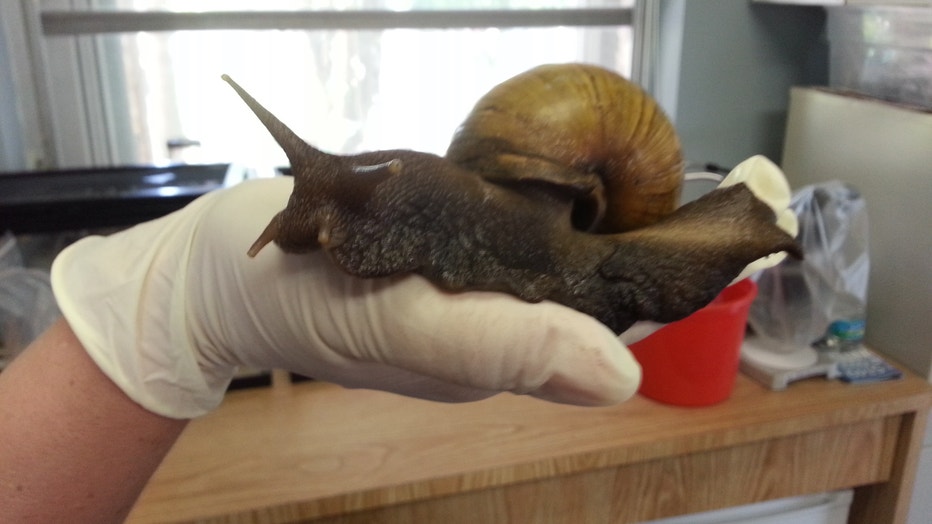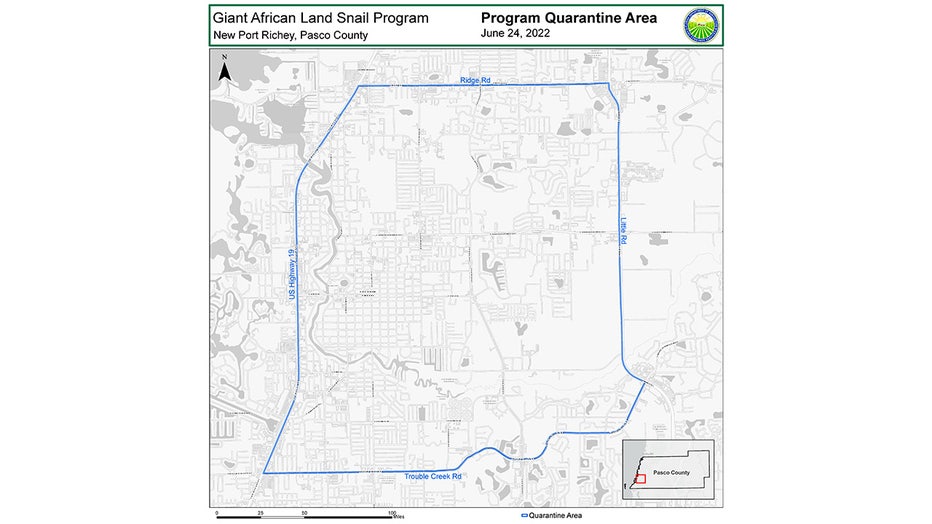Invasive snail that loves damaging plants, living in humidity found in Pasco County
NEW PORT RICHEY, Fla. - Giant African land snails are considered one of the most damaging snails in the world. They have previously been eradicated twice in Florida – and one was found in Pasco County.
A Pasco County Master Gardener recently found the almost 8-inch-long snail in the New Port Richey area. The Florida Department of Agriculture and Consumer Services (FDACS) confirmed the gardener's findings last week.
RELATED: Largest Burmese python ever captured in Florida weighs 215 pounds with over 100 developing eggs
According to the U.S. Department of Agriculture, the snail is a threat to plants, homes, and people's health.
It consumes at least 500 types of plants, causes structural damage to plaster and stucco structures, and carries a parasitic nematode that can lead to meningitis in humans.

Public domain image from USGS
The Giant African land snail was first discovered in southern Florida in the 1960s. It took officials ten years and a total of $1 million to eradicate it, according to the USDA. The species made a return in 2011 and eradication efforts took another ten years.
RELATED: Proof of megalodon extinction is in their teeth, scientists say
The snails remain a threat in Hawaii and the Caribbean after their eradication in Florida in 2021.
Each snail has both female and male reproductive organs, so they can reproduce rapidly. It is able to reproduce several more times after mating once.
They can have about 1,200 eggs every year. They are also one of the world's largest land snails.
After the most recent Giant African land snail discovery in Florida, FDACS's Division of Plant Industry began a survey of the area, enacted a quarantine, and began treatment for the pest on Wednesday.
FDACS also plans to treat properties with a metaldehyde-based molluscicide, which is snail bait.
RELATED: Sharks swimming closer to crowded beaches than previously thought, study says
While the snails are considered dangerous pests, it is still unlawful to move the snail or anything like plants, soil, yard waste, debris, and compost from a quarantine area without permission. The quarantine area's boundaries are Ridge Road to the north, Little Road to the east, Trouble Creek Road to the south, and U.S. Highway 19 to the west.

If you think you've spotted a GAS, email a photo for identification to DPIHelpline@FDACS.gov.

